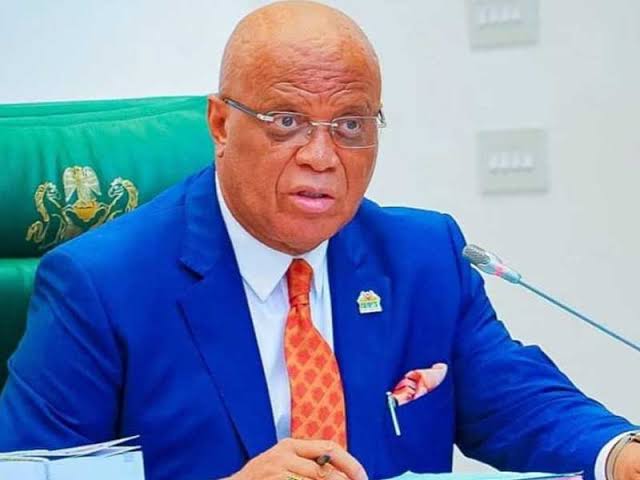
By Luminous Jannamike
IMAGINE a busy polling station in Ogun State in 2027. Voters clutch their PVCs under the hot sun, looking anxious as security officers watch them closely. A young nurse wonders quietly if her vote for change will matter, or if the courts will simply back the powerful again.
This is Nigeria as we look ahead to the next general elections. A country where many no longer trust the process; where fear of rigging is high, and the judiciary seems tilted in favour of some. Nigerians know them.
The key players are familiar. The Independent National Electoral Commission (INEC) is often accused of being unfair. The ruling All Progressives Congress (APC) remains strong, hunger in the land notwithstanding. The opposition, People’s Democratic Party (PDP) and Labour Party, look scattered, like a noisy, disorganised market.
Across the country, people are frustrated: hungry, insecure, and facing tough times. Still, many are asking: Why are we losing faith in democracy? The answer may lie in a political game where the courts seem compromised, and that might be why the 2027 elections may not change things.
Edo 2024: A Preview into 2027 General Elections?
Elections are getting more tense by the day. The 2024 Edo governorship poll made this clear. Reports spoke of security forces intimidating voters and INEC officials mishandling results. The APC won, but many were suspicious of how.
When disputes reached the courts, Election Petition Tribunal and the Appeal Court, they mostly ended in favour of the APC. To the ordinary voter, it felt like a football match where the referee had already picked a side.
Meanwhile, the opposition is crumbling. The PDP is losing members every week, and the Labour Party can’t seem to unite. Big-name defections, like Governor Umo Eno of Akwa Ibom, highlight the problem. Many politicians are crossing over to the APC, believing that the courts and the electoral system are already leaning that way.
Voices from the Field
These defections, disputed elections, and a judiciary seen as biased have stirred strong reactions, showing just how tense the political space has become. Here are some key voices:
Governor Umo Eno, announcing his defection from the PDP at a State Executive Council meeting in Uyo, said: “Anybody who claims he is not aware of my intention to leave the PDP is still living in the 18th century. I love the PDP, but clearly, I don’t have a road map to guarantee that I’ll be able to have a smooth sail in the elections, not because we won’t win elections. I’ll finally find out who my true loyalists are when I defect.”
His words show a practical, even strategic, move to join the APC, where he believes the courts may be less of a threat.
Reuben Abati, anchor on Arise TV’s The Morning Show, praised Eno’s honesty: “I must commend the sincerity of Governor Umo Eno in admitting that he is leaving the PDP because the party is like a faulty aircraft and because he wants to align with the centre, with President Tinubu, and work with the APC. It’s a very honest statement, and we should give him credit for that kind of sincerity.”
But Timothy Osadolor, PDP Deputy National Youth Leader, told Saturday Vanguard: “In truth, this is a governor who has been with the PDP for over 25 years, one who has been given countless opportunities to leave a lasting mark in our democratic history. And now, because of fear, he considers jumping ship ahead of the 2027 elections. This situation raises a vital question: Why is this presidency seemingly vindictive towards opposition figures? Are we now to believe that all APC governors are saints, or that corrupt individuals suddenly become virtuous once they defect to the APC? I call on the governor to reconsider. He has the opportunity to leave a legacy that will be remembered by future generations. As a powerful governor, he should rally Nigerians in demanding credible electoral reforms and ensuring the 2027 elections are truly democratic and transparent.”
These opinions reveal a deep crisis; one filled with doubt, fear, and calls for urgent change in a system many now view as rigged from the top.
A Fork in the Road
Where does Nigeria go from here? There are three possible paths. One, continued defections could collapse the opposition, leaving the APC as the only viable option. Two, growing distrust in the system could discourage people from voting at all, making it easier for the APC to win. Or three, people could rise up and push for change, though that seems less likely for now.
Imagine a young trader in Anambra, counting his small profits at the end of a hard day. He sighs and says he won’t vote again because: “Elections don’t help when one can’t get justice from the courts.”
That quiet frustration mirrors how millions feel. The APC stays in power, not because it’s loved, but because the opposition is weak, elections are questioned, and many believe the judiciary works for the powerful.
A Playful Push for Change
So, what’s the real state of Nigeria’s democracy? Is it stuck, held down by a biased judiciary, or can it bounce back? The truth is, power still lies with the people. If the economy improves and hunger reduces in the next two years APC may be coasting to victory again and many more may rightly join their train. But what happens if hunger in the land continues? Can the people take back their democracy? Or will fear, rigging, and biased courts keep running the show? That’s the big 2027 question and picture Governor Eno’s sincerity paints. Who can save him from judicial technicalities? PDP or APC?
Nigerians know better.
The post 2027: The question Gov Eno’s sincerity addresses appeared first on Vanguard News.